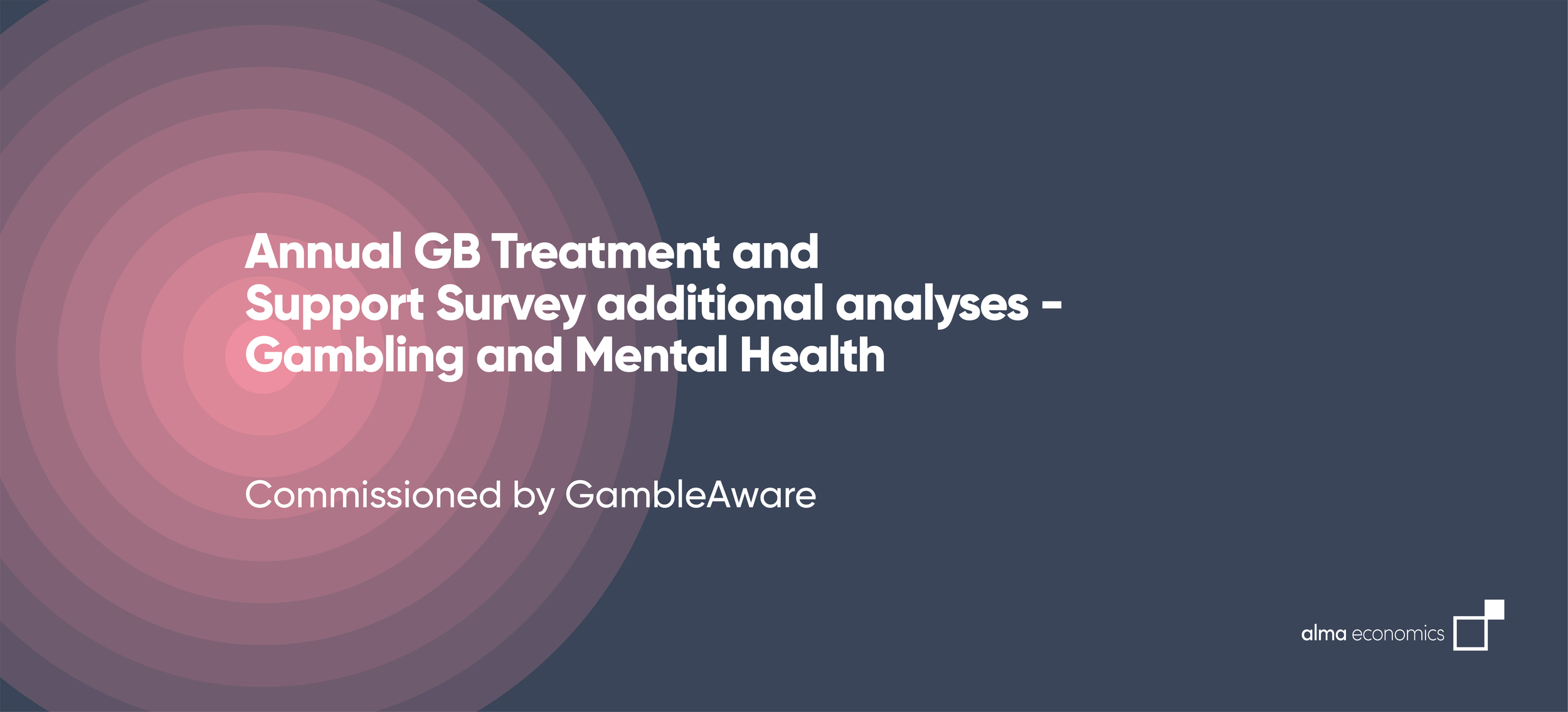Gambling and mental health research
Our team was commissioned by GambleAware to conduct secondary analysis on three waves (2020, 2021, 2022) of the Annual Great Britain Treatment and Support Survey to explore the relationship between mental health and gambling harms.
We carried out a desk-based review of the existing evidence on gambling harms and mental health, including that of “affected others” – i.e., people impacted by others’ gambling. Further, we performed in-depth descriptive, correlation, and regression analysis to explore the relationship between Problem Gambling Severity Index (PGSI) scores and various metrics related to mental health.
Our analysis indicates that, since 2020, the prevalence of both problem gambling and mental health diagnoses has increased. Further, our findings show that certain mental health issues like intermittent explosive disorder (a.k.a. anger disorder) and ADHD are significantly more common among individuals experiencing problem gambling (individuals with PGSI scores of 8 or higher). Individuals who identify as affected others also experience worse mental health than the general population.
The findings of our research will be used by GambleAware to inform guidance to individuals and medical practitioners about the relationship between gambling harms and mental health. It will also help guide future research and uses of the Annual Great Britain Treatment and Support Survey.
The findings from this report have been published on the GambleAware website here.
Read the full report here.

